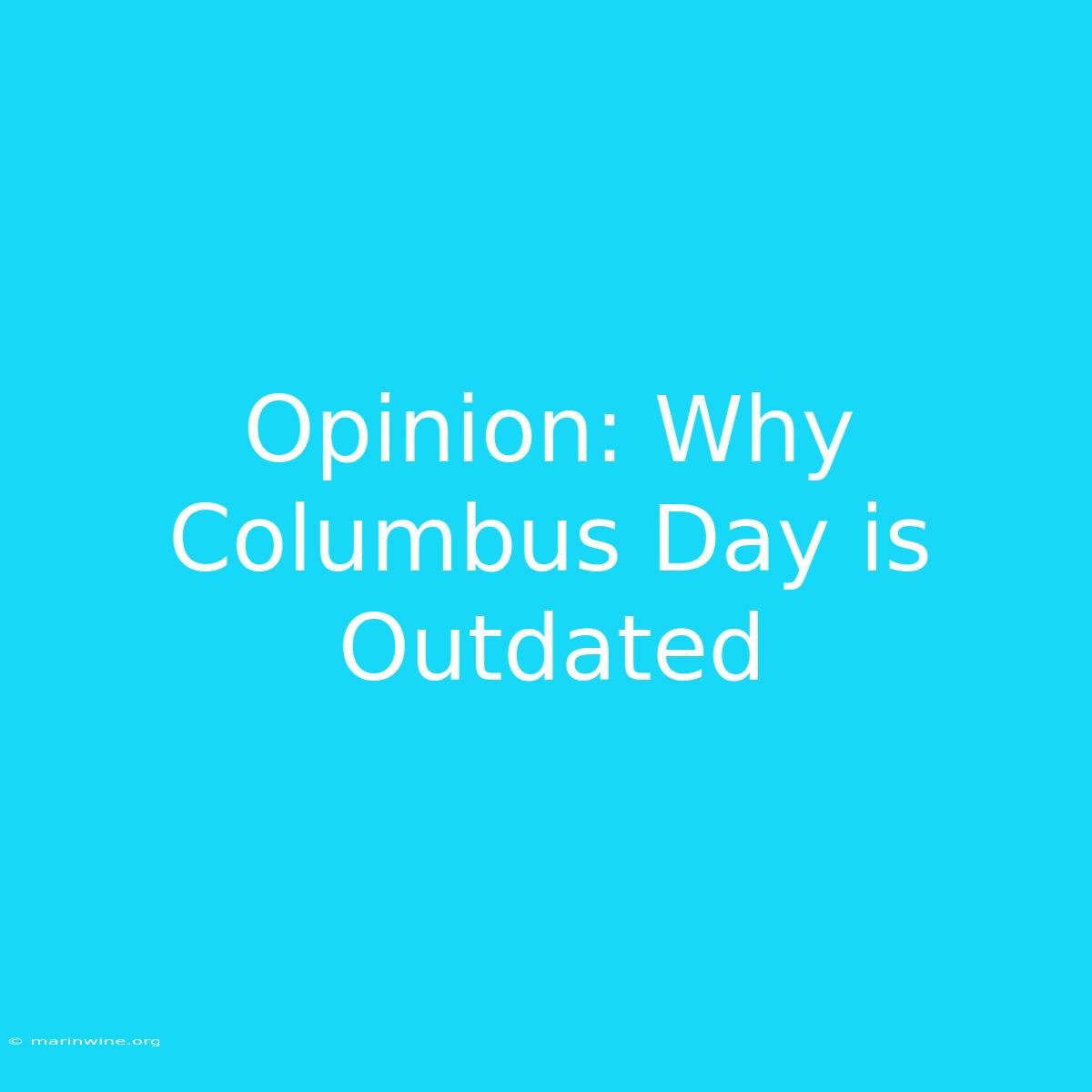Opinion: Why Columbus Day is Outdated
For centuries, October 12th has been celebrated as Columbus Day, a holiday commemorating Christopher Columbus's arrival in the Americas. But in recent years, this celebration has been met with increasing criticism and calls for its abolition. This isn't simply a matter of political correctness; it's about confronting a deeply flawed narrative and acknowledging the devastating impact of Columbus's voyages on indigenous populations.
The Myth vs. Reality:
The traditional narrative of Columbus as a hero who "discovered" America is demonstrably false. First, indigenous people were already thriving in the Americas for thousands of years before Columbus arrived. Second, his "discovery" led to the enslavement, massacre, and displacement of millions of native people. The Columbian Exchange, often touted as a positive outcome, was fueled by violence and exploitation, leaving a lasting legacy of suffering.
A Day of Remembrance, Not Celebration:
Celebrating Columbus Day as a national holiday perpetuates a romanticized view of history that ignores the brutal realities of colonialism. We cannot continue to celebrate the man who initiated a period of unimaginable hardship for indigenous communities, especially when many of these communities continue to face challenges today.
Instead of celebrating, we should be using this day as an opportunity for reflection and education. It's a day to learn about the rich history and culture of the indigenous peoples of the Americas, to acknowledge the injustices they have faced, and to recognize the ongoing fight for their rights and representation.
Moving Forward:
The continued celebration of Columbus Day is a disservice to the memory of those who suffered under his legacy. We must move beyond the myth of Columbus and acknowledge the true impact of his actions.
Instead of celebrating Columbus Day, we should consider adopting Indigenous Peoples' Day. This change would reflect a genuine commitment to recognizing the history and contributions of indigenous people and would be a step towards a more inclusive and accurate historical narrative.
By embracing a more truthful and inclusive history, we can build a future that honors the past and prioritizes the well-being of all communities.

